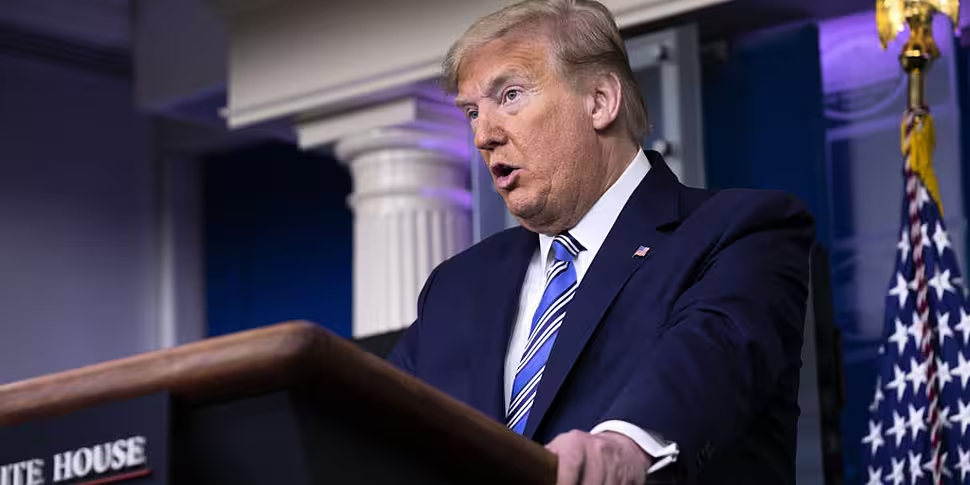US President Donald Trump has said he is to "temporarily suspend immigration" into the country due to the coronavirus pandemic.
On Twitter he said: "In light of the attack from the Invisible Enemy, as well as the need to protect the jobs of our GREAT American Citizens, I will be signing an Executive Order to temporarily suspend immigration into the United States!"
He did not give further details, however, and the White House did not clarify the plan.
Reaction was mixed, with former Democratic presidential candidate Julian Castro tweeting: "You cut off immigration, you crater our nation's already weakened economy. What a dumb move."
But Thomas Homan, Mr Trump's former acting director of US immigration and customs enforcement, said: "It makes sense to protect opportunities for our workforce while this pandemic plays out.
"It's really not about immigration - it's about the pandemic and keeping our country safer while protecting opportunities for unemployed Americans."
It comes as COVID-19 continues to tighten its grip on the US.
More than 785,000 people have been confirmed as having the virus there and more than 42,000 have died.
The virus has also hit the economy and seen more than 22 million people apply for unemployment benefits in the last month.
Meanwhile the price of US oil turned negative for the first time in history on Monday, as producers are running out of space to store the product amid a fall in demand due to the pandemic.
The biggest impact was seen in the May US West Texas Intermediate (WTI) crude futures contract, considered a benchmark for US oil prices.
Due to measures taken to limit the virus's spread, almost all visa processing by the US State Department has been suspended for the past few weeks.
This includes visas for immigrants.
Mr Trump's anti-immigration move comes as he continues to push for the re-opening of the US economy.
This is despite Dr Anthony Fauci, the US government's top infectious-disease expert, warning on ABC: "Unless we get the virus under control, the real recovery economically is not going to happen."
Georgia's governor, Brian Kemp, plans to restart his state's economy before the end of next week and Texas has started to reopen, beginning with state parks and saying that stores will be able to provide some services later this week.
Tennessee's governor, Bill Lee, has said businesses there will start reopening as early as next week, although the order did not cover some of the largest cities.
Elective surgery will resume under certain rules in West Virginia, and Colorado's stay-at-home order expires next week.
But many other governors said their states did not have enough testing supplies, leaving them vulnerable to a second wave of infections.









